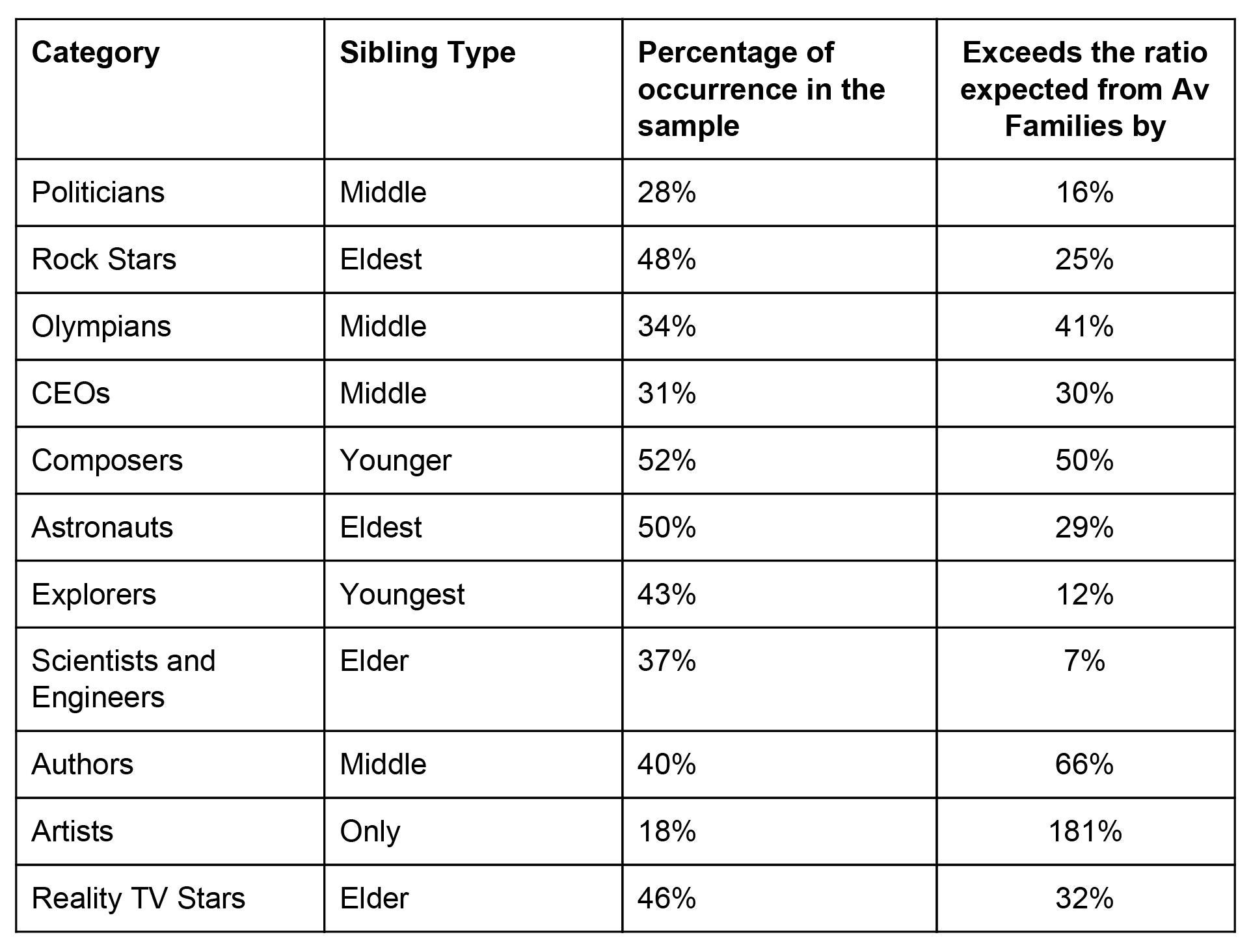National Siblings Day: What career you're most likely to have whether you're the oldest, middle or youngest child
Were you born to be a CEO?

Your support helps us to tell the story
From reproductive rights to climate change to Big Tech, The Independent is on the ground when the story is developing. Whether it's investigating the financials of Elon Musk's pro-Trump PAC or producing our latest documentary, 'The A Word', which shines a light on the American women fighting for reproductive rights, we know how important it is to parse out the facts from the messaging.
At such a critical moment in US history, we need reporters on the ground. Your donation allows us to keep sending journalists to speak to both sides of the story.
The Independent is trusted by Americans across the entire political spectrum. And unlike many other quality news outlets, we choose not to lock Americans out of our reporting and analysis with paywalls. We believe quality journalism should be available to everyone, paid for by those who can afford it.
Your support makes all the difference.For many years, studies have shown that birth order affects personality, but new research confirms that whether you’re an older, middle or younger child bears an impact on career path too.
The new study by Disney has been released to mark National Sibling Day (10 April) and commemorate the relationship between sisters Elsa and Anna in the Disney hit Frozen.
Led by psychologist Emma Kenny, the researchers found significant evidence to support the theory that birth order has a tangible and marked effect on career paths.
In order to reach their conclusions, a team of statisticians analysed a random sample of over 500 of the most successful individuals from 11 different career groups to identify statistically significant patterns.
One of the most clear findings was that middle children are 30 per cent more likely to become company CEOs than their siblings.
The researchers suggested that this could be because having to fight for attention results in middle children developing personality traits such as competitiveness, flexibility and diplomacy, which then makes them suited to high-flying roles which require tactful thinking and high levels of management.
Mark Zuckerberg, Lord Alan Sugar and Bill Gates are all middle children.
In encouraging news for middle children across the world, the study also found that they’re 41 per cent more likely to be Olympic athletes.
“The research conducted over the last month has shown that birth order is a significant factor in determining employment role types between siblings - overall there are far more typical cases than exceptions,” Kenny explains.
Interestingly, the researchers found that the majority of astronauts are first-born children - Buzz Aldrin and Neil Armstrong are prime examples.
Eldest children are also most likely to become scientists or engineers like Stephen Hawking and Tim Berners Lee.
Youngest children like Johann Sebastian Bach and Mozart were found to be 50 per cent more likely to have careers in classical music, possibly for their “sensitive and idealistic personality traits,” the researchers suggest.
As for only children, the study suggests they’re more likely to become artists due to their “perfectionist and mature personality traits.”

The average UK family has 2.44 children, but the researchers found that family size does play a part - scientists were found to come from much larger families than average.
Join our commenting forum
Join thought-provoking conversations, follow other Independent readers and see their replies
Comments